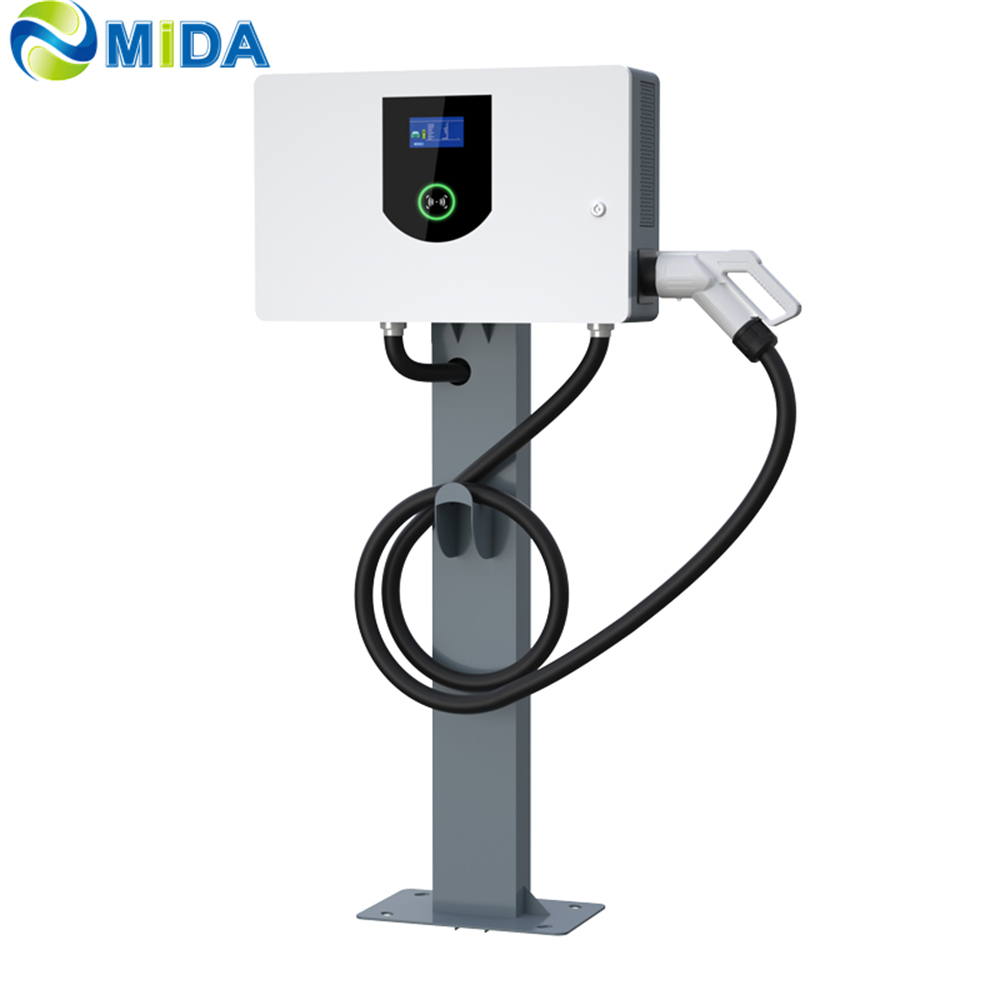Does dc fast charging damage batteries ?
GBT DC fast charging can potentially cause some wear and tear on a battery over time, but it's not necessarily damaging if used within the manufacturer's recommended guidelines. The high voltage and current used in 45kw DC fast charger can generate more heat and stress on the battery compared to slower charging methods, which can contribute to slightly faster degradation of the battery over the long term.
However, modern electric vehicle (EV) batteries are designed to withstand fast charging and have built-in thermal management systems to help mitigate the effects of rapid charging. Additionally, manufacturers often provide guidelines for optimal charging practices to help minimize any potential negative impact on the battery.


First, We must figure out the dc fast charging principle
DC fast charger with ccs plug, also known as direct current fast charging, is a method of quickly charging electric vehicle (EV) batteries by directly providing high-voltage DC power to the battery. The principle of DC fast charging involves bypassing the vehicle's onboard charger and delivering high levels of electrical current directly to the battery, allowing for rapid charging.
The process typically involves specialized charging equipment that can deliver high power levels, often in the range of 50 kW to 350 kW or more, depending on the capabilities of the charging infrastructure and the vehicle being charged. This high-power delivery allows for significantly faster charging times compared to standard AC charging methods.
During DC fast charging, the charging station communicates with the vehicle to ensure that the battery can safely accept the high-power charge. Additionally, many modern EVs are equipped with thermal management systems to help dissipate the heat generated during fast charging, which can help protect the battery from excessive stress and degradation.
The principle of DC fast charging involves delivering high-voltage direct current to the EV battery, enabling rapid charging while considering the battery's safety and longevity.
How fast charging affect EV battery life?
Fast charging can affect battery life due to the increased heat and stress placed on the battery during rapid charging. The high voltage and current used in fast charging can lead to accelerated degradation of the battery over time. This can result in a reduction in the overall capacity and performance of the battery.
The impact of fast charging on battery life can vary depending on factors such as the specific battery chemistry, the design of the charging system, and the thermal management capabilities of the electric vehicle. While modern batteries and charging systems are designed to withstand fast charging, frequent and prolonged use of fast charging can contribute to a faster decline in battery health.
It's important for EV owners to follow manufacturer recommendations for charging practices, including balancing fast charging with slower, more gentle charging methods to help preserve the long-term health of the battery. Additionally, proper thermal management and cooling systems in the vehicle can help mitigate the effects of fast charging on battery life.
Does EV fast charging reduce battery life?
Yes, EV fast charging can potentially reduce battery life over time. DC Fast charging generates more heat and stress on the battery compared to slower charging methods, which can contribute to accelerated degradation of the battery. The high voltage and current used in fast charging can impact the long-term health of the battery.
However, modern electric vehicle (EV) batteries are designed to withstand fast charging and have built-in thermal management systems to help mitigate the effects of rapid charging. Additionally, manufacturers often provide guidelines for optimal charging practices to help minimize any potential negative impact on the battery.
In summary, while EV fast charging may contribute to some additional wear on the battery, when used as directed by the manufacturer, it should not cause significant damage. It's important to follow the manufacturer's recommendations for charging and maintenance to help preserve the battery's longevity.
Overview of the Electric Vehicle (EV) DC Fast Charger Market Report
In 2023, the global market size for Electric Vehicle (EV) DC Fast Chargers reached USD 2406.8 million and is projected to reach USD 12160 million by 2030, with a CAGR of 26.0% during the review period. EV DC fast chargers are significantly faster than regular AC charging stations, taking between 15 and 45 minutes to charge most passenger electric vehicles up to 80 percent, making it convenient for on-the-go charging. The output of DC fast chargers can range from 25 kW to 350 kW.
Key manufacturers of global EV DC fast chargers include TELD, ABB, Star Charge, XJ Electric, Tritium Pty Ltd, TESLA, ChargePoint, and Efacec. The top five manufacturers hold over 40% of the market share, with TELD being the largest manufacturer at 15.33%. The main production regions for EV DC fast chargers are located in Europe, the United States, China, and South Korea, with China holding the largest market share at 89.98%.
DC fast charger Market Share
GB/T EV DC fast chargers have the highest market share at 73.05%, followed by combined charging system (CCS) at 21.73%. In terms of applications, transportation hubs account for 47.78% of the market share, followed by public parking.
The Global Info Research report provides an overview of the development of the EV DC Fast Charger industry chain, the market status of transportation hubs (CCS, CHAdeMO), public parking (CCS, CHAdeMO), and key enterprises in developed and developing markets. It also analyzes cutting-edge technology, patents, hot applications, and market trends of EV DC Fast Chargers.
Regionally, the report analyzes the EV DC Fast Charger markets in key regions. North America and Europe are experiencing steady growth due to government initiatives and increasing consumer awareness. Asia-Pacific, particularly China, leads the global EV DC Fast Charger market, driven by robust domestic demand, supportive policies, and a strong manufacturing base.
TOP 5 regions leading the Electric Vehicle (EV) DC Fast Charger Market
1. North America
2. Europe
3. Asia-Pacific
4. Middle East and Africa
5. South America
Post time: May-25-2024





